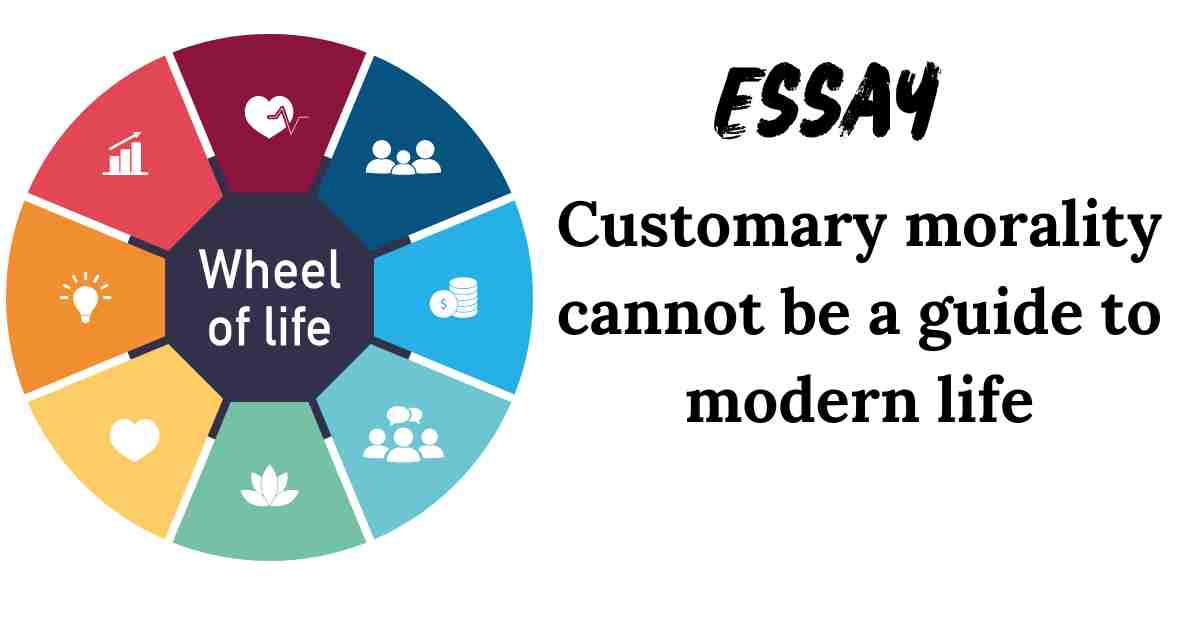C ustomary morality is the term used to describe the traditional moral laws and customs that are carried down through a culture or group from one generation to the next. These laws and customs, which are frequently founded on religious or cultural values, are accepted as the standard of conduct in that society. However, conventional morality cannot serve as a guide for modern life in the fast-paced and constantly evolving world of today. With a changing approach, these societal are as outdated as historic living. The fact that traditional morality is frequently founded on out-of-date or constricting notions is one of the key reasons it cannot serve as a guide for contemporary life. The development of many old moral laws and customs occurred when the world was very different from what it is today. For instance, many conventional moral norms discriminate against specific racial, ethnic, or sexual orientation groups of people. These laws no longer apply in today’s culture and may even be detrimental to those they are intended to protect. The fact that traditional morality does not take into account how society’s values and beliefs are evolving is another reason why it cannot serve as a guide for modern life. People’s ideas and values change as society develops and becomes more varied. What might have been regarded as moral and respectable conduct in the past might not be so today. Because it does not take into account the shifting values and beliefs of society, a moral code based on ancient ideas and customs cannot serve as a guide for modern living.
Additionally, conventional morality frequently derives from a particular cultural or religious belief that may not be held by all people in society. This can cause tensions between various social groups and could be used as justification for prejudice and inequality. It is crucial to have a moral code that is inclusive and respects the views and values of all members of society in today’s diverse and modern society. Additionally, conventional morality is frequently founded on absolutism, leaving no possibility for flexibility or complexity. Contrarily, because people nowadays are dealing with complex and subtle moral issues, modern life frequently calls for flexibility and nuance. Because it does not allow for the flexibility and nuance needed in today’s complicated environment, an absolute moral code cannot serve as a guide for modern living.
Traditional morality is inapplicable to contemporary living. It frequently rests on outmoded or limited viewpoints, disregards the shifting values and beliefs of society, frequently rests on a particular cultural or religious belief, and is founded on absolutism. Modern living needs a moral framework that is democratic: inclusive, respects each person’s values and views, and allows for nuance and flexibility. It is necessary to be open to new ideas and ways of thinking since moral standards and practices are continually changing in response to societal demands and difficulties. Human is the only thinking animal on the planet, if they will not think twice about the customs they follow, for upgrading their moral obligations in this change, then what is the point?


